Metro
Nigeria: President Tinubu’s party man accuses him of acting like a dictator
Published
11 months agoon
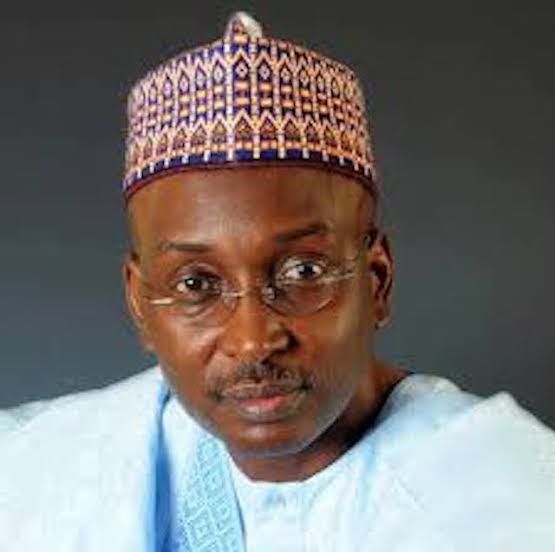
A chieftain of Nigeria’s ruling All Progressives Congress (APC), Salihu Lukman, has accused President Bola Tinubu of running a government of “exclusion” while behaving more like a military dictator.
Lukma, who was the APC National Vice Chairman (Northwest) before he resigned from his position last year due to a running battle with the leadership of the party, alleged that Tinubu had been carrying on the affairs of the country without consultations with Nigerians since he was sworn into office.
Lukman, who made the allegations in a statement in Abuja on Saturday, noted that although President Tinubu had taken responsibility for the economic situation in the country, “the crucial issue is, having taken responsibility, how long would it take to get to the end of the ‘tunnel’ when will the expected ‘light’ begin to shine?”.
“With APC now increasingly becoming a closed shop with virtually all its organs demobilized and the omnipotent status of the President strengthened, what is the future of the APC?” Lukman queried.
“Being an envisioned progressive party but end up producing progressive governments in reverse gear, what is the implication?
“Is it a question of leaders becoming indifferent to the electoral fortunes of the party? Does the fact of being indifferent to the electoral fortune of the party also mean being unconcerned about the future of democracy in Nigeria?
“These questions are being asked not in agreement with any conclusion of being indifferent but to attempt to rekindle the conscience of our leaders, especially President Asiwaju Tinubu.
“Without any hesitation, one can argue that at the rate we are going, our party, APC, and our leaders have shortchanged Nigerians.
“What Nigerians are having today wasn’t what was promised at all. The most disturbing reality is that given that the current economic hardship is produced during the first term of President Asiwaju Tinubu, with no end in sight, does it then mean that President Asiwaju Tinubu is not interested in second term? Certainly not.
“If he is interested in a second term, why is he managing affairs of government like a military dictator, shutting down the structures of the party and talking down on citizens like a philosopher king who has absolute knowledge of what will produce possible happiness for citizens?”
The party chieftain said as a Nigerian and as members of the APC, these are worrisome realities which weaken confidence in the prospect of getting to the end of the tunnel and whether any bright light will illuminate the lives of citizens.
“This is partly because what is becoming very disturbing is that since the assumption of office of the President Asiwaju Tinubu, on May 29, 2023, major policy decisions are taken impulsively without clearly defined plans, at least not shared with Nigerians.
“Three good examples are the issue of removal of subsidy on petroleum products, floating the exchange rate of the Naira, and sanction against Niger Republic following the coup of July 26, 2023.
“Adding to the impulsive approach to decision making, on Monday, February 26, 2024 after the Federal Executive Council (FEC) meeting, the Minister of Information and National Orientation, Mohammed Idris, announced the resolution of the Federal Government to implement the recommendations of Steven Oronsaye Committee report.
“With that decision, out of the 541 Federal Government parastatals, commissions and agencies that existed in 2012, 263 agencies should be reduced to 161, 38 abolished, 52 merged, and 14 returned to departments in ministries.
“In which case, rather than acting as a progressive government that is dynamic, action oriented towards improving the welfare conditions of citizens, President Asiwaju Tinubu’s administration is behaving more like a reactionary government. Given such reality, it is almost impossible to predict what the goal or vision of the government is.
“This was clearly the same problem we had with former President Muhammadu Buhari’s government. The incomprehensible reality is that both former President Buhari’s and current President Asiwaju Tinubu’s governments are APC governments, which got elected based on the promise of changing Nigeria.
“Part of the change that is expected is having a government that guarantees and accommodates inclusivity, based on which the outcry of citizens is factored and utilised to guide design and implementation of government policy.
“From the time of former President Buhari to the current era of President Asiwaju Tinubu, issues of inclusivity are in reverse gear.
“Rather than engaging Nigerians and getting them to own policies of government, supposedly progressive governments talked down on Nigerians and like dictators almost tell citizens to take as given every decision taken, even when faced with grave consequences, threatening survival as is presently being experienced.”
You may like
-


‘Pray for leaders to serve you diligently,’ President Tinubu tells Nigerians
-


Nigeria on the right path despite hardship, criticism— President Tinubu
-
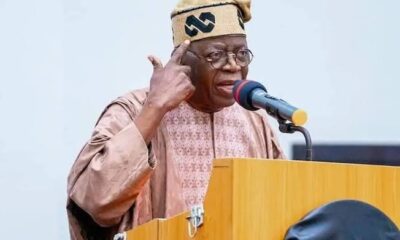

‘I don’t take pleasure in causing you pains,’ Tinubu tells Nigerians amid hardship
-
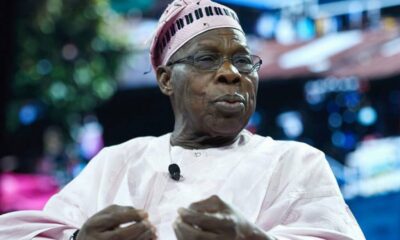

Start anti-corruption war from the top, former President Obasanjo tells Nigerian govt
-


Yes, Nigerians are suffering but better days are ahead— Tinubu
-
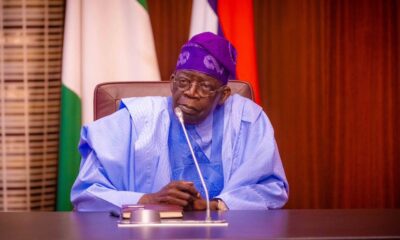

Tinubu pledges to stabilize ECOWAS in the face of insecurity
Metro
‘Don’t start what you can’t finish’, ex-Nigerian official replies President Tchiani
Published
3 weeks agoon
December 29, 2024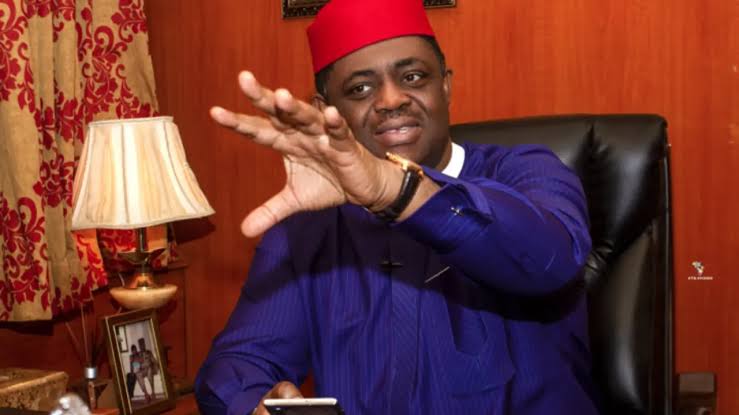
Former Nigerian Aviation Minister, Femi Fani-Kayode, has told President Abdourahamane Tchiani of Niger Republic to refrain from making infantile and puerile allegations that Nigeria is conniving with France and the Lakurawa terrorists to destabilize his country.
Tchiani had, during an interview with Radio-Télévision du Niger on December 25, accused the Nigerian government of using the sect, with the help of foreign security forces notably from France, to wreck havoc in his country, insinuating that President Bola Tinubu had been paid by the France government to allow their military to establish a base in Borno State.
He also alleged that Nigeria, acting in collaboration with the French government and the terrorist group, was responsible for an attack on the Niger-Benin oil pipeline on December 13, 2024, in Gaya, Dosso Region of Niger Republic.
But in a statement he posted on his official X handle on Sunday, Fani-Kayode who is popularly called FFK, said Nigeria does not need the help of France and thr Lakurawa terrorist to destabilize Niger Republic.
FFK insisted that Nigeria is not part of the western powers sponsoring terrorists organizations to wretch havoc on the West African sub region.
“If Nigeria wanted to destabilise Niger Republic, I do not believe that we would need France or any terrorist organisation to do so,” the politician wrote.
He noted that on the contrary, western powers are the ones behind terrorist organizations operating in the region and other parts of Africa.
“I have maintained that the western powers are behind the terrorist groups that have plagued the West African sub region over the last 15 years and for the last ten years I have publicly stated this and given my reasons.
“I am equally certain that Nigeria, being one of the major victims of these terrorist organisations, has had no part in it and that no Nigerian President, past or present, has indulged in such grave and dangerous actions.”
He went on to advice Tchiani against provoking Nigeria with unguarded and infantile utterances capable of stoking Nigeria against his country.
“The Nigerien Military Head of State, Abdourahamane Tchiani, would do well to be careful not to provoke our wrath with his absurd assertions and remain mindful of the fact that the defence budget for his country, Mali and Burkina Faso COMBINED is not up to 25% of Nigeria’s.
“Tchiani’s grave allegations that President Tinubu and NSA Nuhu Ribadu have been bought by the French to destabilise Niger Republic, that our Government is jointly sponsoring a terrorist group with France to do same and that there are French military bases in Nigeria are infantile, puerile, mendacious and asinine.
“It is a squalid attempt by the Nigerien Head of State to sow the seeds of dissention in our country, to alienate our people from constituted authority, to divide our people and to undermine the Tinubu administration,” he added.
“It is also highly provocative and the FG should consider the possibility of taking other more extreeme measures if this reckless provocation continues.
“We are under no obligation to show restraint when we are being undermined and maligned.
Metro
Zambia announces second case of Mpox as country battles cholera outbreak
Published
3 weeks agoon
December 28, 2024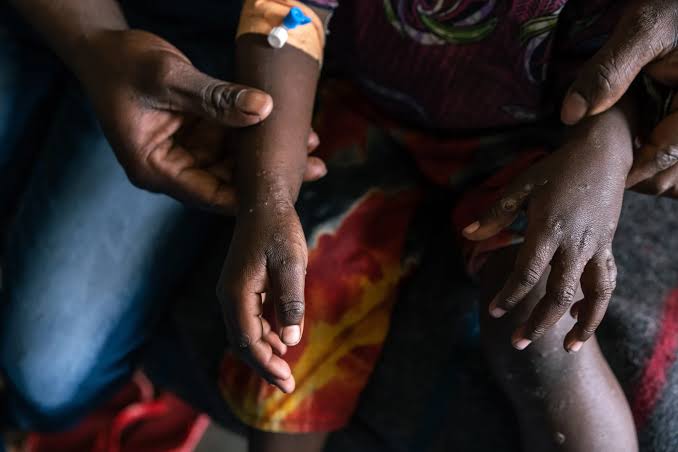
The Zambian Ministry of Health has reported a second case of Monkeypox, popularly known as Mpox, in Kitwe region of Copperbelt Province.
Acting Health Minister, Douglas Syakalima, who made the announcement on Friday during a press conference in Lusaka, revealed that the Ministry is intensifying contact tracing and surveillance to curb further spread of the disease.
Syakalima who also addressed the ongoing cholera outbreak in Nakonde, Muchinga Province, said thus far, seven cases have been confirmed.
“The second Mpox case involves a 34-year-old female from Ndeke, Kitwe, who presented with symptoms including rash, fever, swollen lymph nodes, and oral ulcers on December 21,” Syakalima said at the press parley.
He noted that there was an initial misdiagnosis with chickenpox in Lumwana, North-Western Province, but laboratory tests on December 26 confirmed that it was Mpox.
Syakalima added that the patient’s husband, who works in a neighboring country with confirmed Mpox cases, had experienced similar symptoms earlier this month.
“Both patients are now stable and under close monitoring. A rapid response team has been deployed to trace contacts and prevent further spread,” he said, adding that eight close contacts of the couple are currently under observation, while nationwide surveillance has been heightened.
The Health Minister added that on December 26, five cholera cases were confirmed at Nakonde Urban Clinic with the first three patients, a husband, wife, and their son, admitted on December 24 with symptoms of diarrhea, vomiting, dehydration, and shock.
“Today, two more cases have been reported, bringing the total to seven confirmed cholera cases from the same household,” Syakalima stated.
He explained that Nakonde’s location as a border town with high cross-border movement poses a risk for the disease to spread to other parts of the country.
The Minister however, assured that the Ministry has deployed teams to trace contacts, chlorinate water sources, disinfect affected homes, and activate Incident Management Systems at district and provincial levels while surveillance has been heightened, and contact tracing is ongoing for 33 individuals.
“The government remains committed to preventing further spread of these diseases,” Syakalima assured.
EDITOR’S PICK


Nigeria: Marketers predict further price cut as another refinery begins operations
Oil marketers and the Nigerian Midstream and Downstream Petroleum Regulatory Authority expect refined petroleum product prices to reduce as another...


Kenya: Consumer inflation rises to 3.0% from 2.8%
Kenya’s statistics agency said on Tuesday that Kenya’s consumer price inflation increased slightly to 3.0% year-over-year in December from 2.8%...


South Africa’s Transnet’s half-year deficit hits $117m
Transnet, a state-owned logistics company in South Africa, announced on Tuesday that it had lost 2.2 billion rand ($117.48 million)...


Nigeria, China extend $2bn currency swap deal
A 15 billion yuan ($2 billion) currency-swap arrangement between China and Nigeria has been extended to boost investment and commerce...


Egypt’s central bank maintains overnight rates
As anticipated, Egypt’s central bank has maintained its overnight interest rates, stating that although inflation was predicted to drop significantly...


Illicit flows cost Nigeria, others $1.6bn daily— AfDB
According to the African Development Bank (AfDB), illicit money flows and profit shifting by multinational corporations doing business in Africa...


‘Don’t start what you can’t finish’, ex-Nigerian official replies President Tchiani
Former Nigerian Aviation Minister, Femi Fani-Kayode, has told President Abdourahamane Tchiani of Niger Republic to refrain from making infantile and...


Again, Starlink raises prices of its services in Nigeria
Elon Musk’s satellite internet service provider, Starlink, has again jacked up the prices of its services in Nigeria after an...


Former President of Moroccan club Raja sentenced to 3 years in prison
The former President of Moroccan top club, Raja Casablanca, Mohamed Aouzal, has been sentenced to three and a half years...


Zambia announces second case of Mpox as country battles cholera outbreak
The Zambian Ministry of Health has reported a second case of Monkeypox, popularly known as Mpox, in Kitwe region of...


